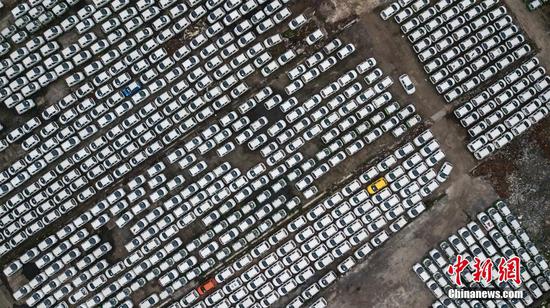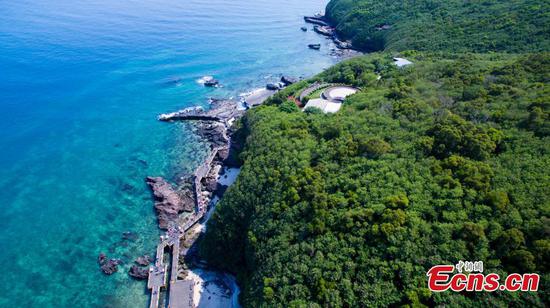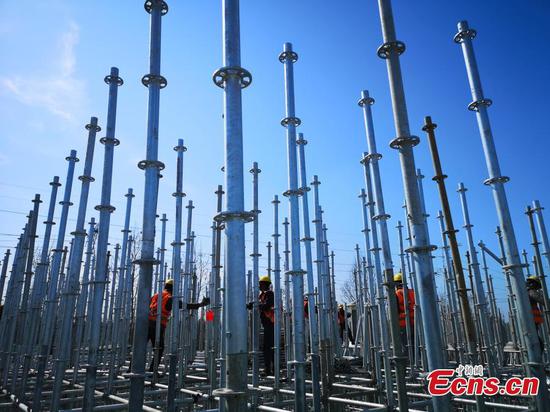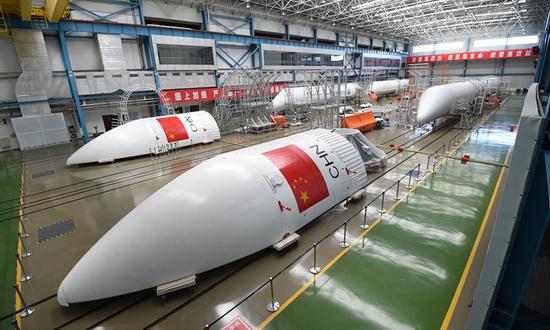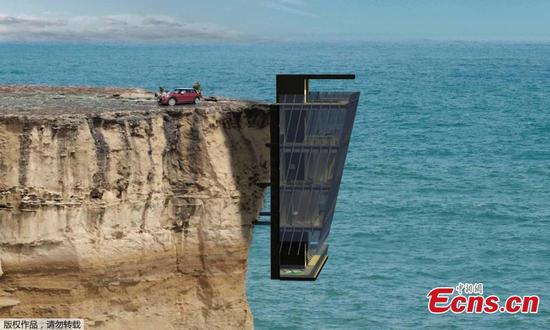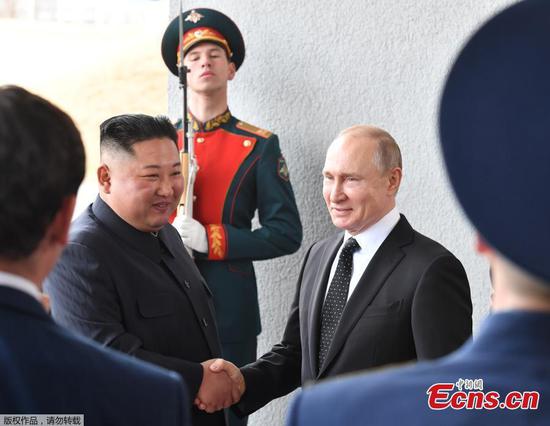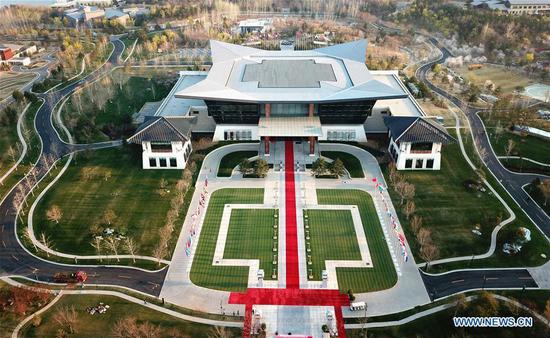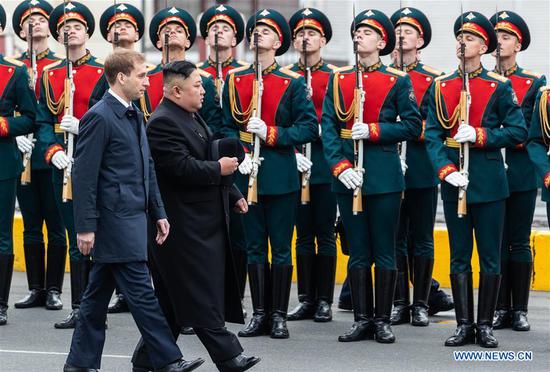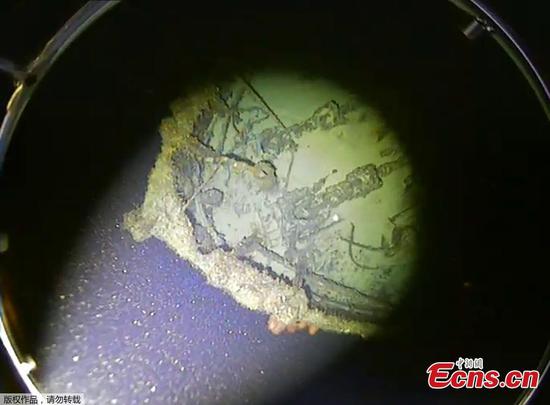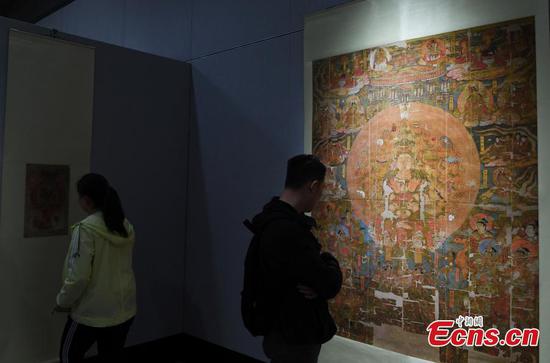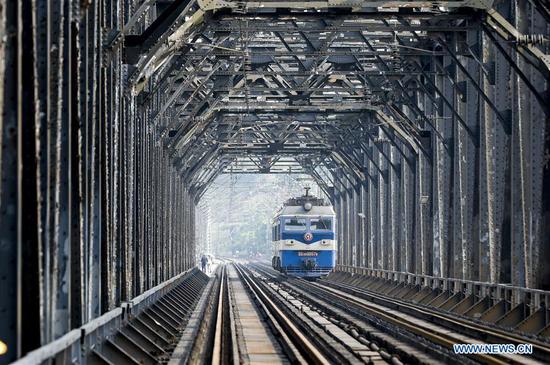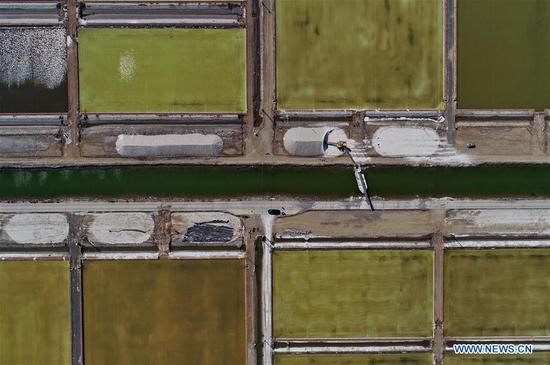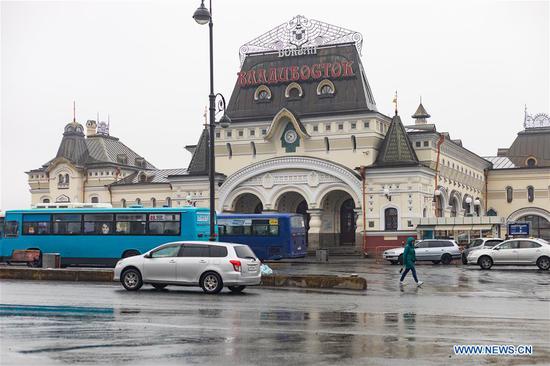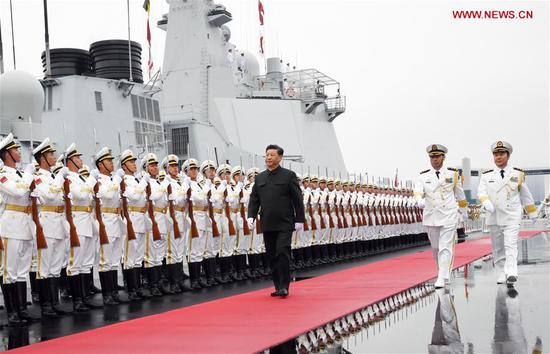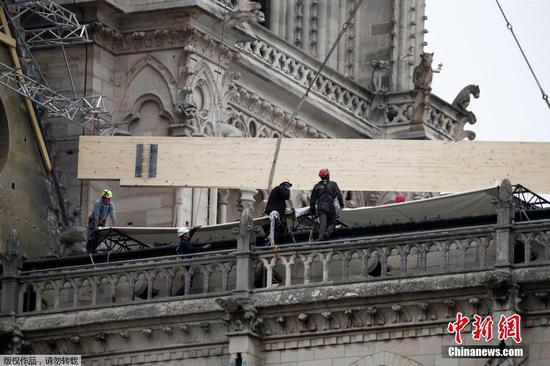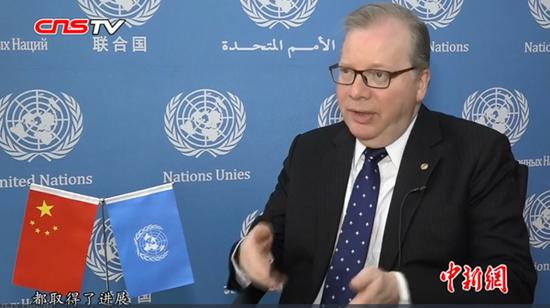French President Emmanuel Macron, still struggling to find a way out of the "Yellow Vest" crisis, on Thursday proposed "more humane" response to "a deep feeling of tax, territorial and social unfairness," but said unpopular reforms his government was implementing must continue.
"I asked myself: Should we stop everything that was done over the past two years? Did we take a wrong turn? I believe quite the opposite," Macron said during a news conference, the first in his presidency.
"The transformations that are in progress and the transformations that are essential for our country should not be stopped. I believe that these fundamentals must be preserved, continued and intensified," he told a gathering of government officials and hundreds of journalists.
He argued that "during the crisis that we are witnessing, we are creating jobs. At this moment, our growth is higher than that of many neighboring countries."
"I think I can do better," he said, regretting "the feeling I gave of being hard, sometimes unfair."
MORE MEASURES, MORE HUMANE
His rare move that he has avoided since he was elected in May 2017 came after 23 weeks of protests staged by "Yellow Vest" protest, a spontaneous movement coordinated via social media.
Luring people from different ages and backgrounds, it erupted on Nov. 17, 2018 and has evolved to a social uprising putting Macron, France's once political star, on the hot seat.
"I believe that the anger that has been expressed is not the result of these reforms. It is the result of a method that was not the right one, a lack of humanity that was expressed, the fruit of failures... of a very long time," the president said.
In response "to a feeling of unfairness and abandonment," Macron proposed "a more humane response to unite."
"This new time of our Republic has one objective: to give hope to everyone to rebuild together the art of being French. It is to be rooted and universal..." he stressed.
With that end, he proposed constitutional reform by the summer to make people more involved in the democratic process by simplifying rules for referendums and decentralizing administrations.
"At the democratic level, citizens want to be better represented, to participate more," he said.
Rejecting the referendum of citizens' initiative (RIC), one of "Yellow Vest" key request, Macron proposed easier rules to hold a referendum of shared initiative, reduce the number of parliamentarians and limit the number of mandates over time.
He also proposed to launch an "act II of decentralization" by 2020 which "should focus on housing, transport, ecological transition."
In a further move to silent critics, the head of state, described as "the president of the rich", pledged to "significantly reducing income taxes", which would be financed by eliminating certain loopholes and squeezing public expenditure.
He also announced that pensions below 2,000 euros (2.227 U.S. dollars) would be linked to inflation, in addition to tax-free end-of-year bonus so that "work pays."
Among other measures he proposed is the creation of an "ecological defense council" that he will head to press through energy transition, halting the closure of hospitals and schools in rural areas and closure of the country's elite ENA civil service college.
NOT ENOUGH TO QUELL ANGER
For nearly 2.5 hours, Macron tried to gain the initiative by justifying what he did and explaining what he intends to do to hundreds of journalists. But his first such exercise seemed to fall short to quell anger.
"He has not listened to what has been said in the streets for five months. He started his speech by saying that what he had done for two years was very good and we did not understand," Maxime Nicolle, one of "Yellow Vest" representatives, was quoted as saying by local media.
"...Nothing is precise, so on Saturday we will show that we also know how to do things in depth," he said.
Ingrid Levavasseur, another figure of the movement, told the local broadcaster Europe1: "Clearly, I'm very disappointed. I think he could have announced flagship measures, but it's an old hat."
To Jordan Bardella, head of the far-right National Rally's list for European election, Macron failed to come out with the appropriate devices to handle public anger that, according to him, would endure.
On his Twitter account, Olivier Besancenot, a hard-left politician, wrote: "after 5 months of revolt against the expensive life, not a word on the increase of wages, pensions and allowances! This is not a press conference, it is a call to take to the street on Saturday and May 1st! Effective advocacy for the fight!"
Upon his inauguration in May 2017, Macron, pledged that his first mission would be uniting the French people, facing all challenges and getting the country out of crisis.
Since then, he had been changing labor code and pension, proposing to inject dynamism into public services and institutions and reforming rail sector and education system -- areas where he was facing fierce opposition that drew thousands to the country's streets in addition to rolling strikes.
His latest reform to speed up energy transition and protect environment has created a tense social climate that led his approval rating to record low, suggesting that the spontaneous movement could turn the tide against the Elysee's youngest occupant.
A recent Elabe poll showed 28 percent of interviewed people expressed confidence in the president's ability to fix the social and economic crisis, down by three percentage points. (1 euro=1.113 U.S. dollars)











